
We're on a mission to revolutionize rest.
At NextSense, we see the brain as the next frontier in wellbeing—and sleep as the foundation of lifelong performance, health, and happiness. Smartbuds were created to democratize brain data and help you live fully awake.
Leadership & Advisors
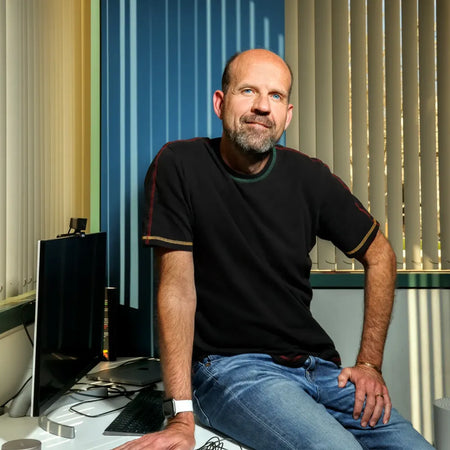
Jonathan Berent

Jonathan “JB” Berent is the Founder and CEO of NextSense, a company incubated at Google X. With over a decade of experience in neurotechnology and leadership roles at Google and Oracle, JB brings a wealth of knowledge to the field of wearable brain-sensing technology. His past experience includes leading operational roles for Google’s AdWords in the Americas and founding Lucid Reality, Inc. He currently lectures on Sleep Hacking at Stanford and UCSF. JB’s work continues to push the boundaries of neurotech with Tone’s groundbreaking EEG sleep-enhancing earbuds.

John Kuelper

John Kuelper is Senior Managing Director and Head of Healthcare Technology at Ascension Ventures (AV), a strategic venture capital and growth equity firm with over $1 billion under management which invests on behalf of thirteen of the nation's largest non-profit health systems. At AV, John focuses on investments in data-intensive enterprise and clinical technologies that serve healthcare providers and consumers. John is Founder and Managing Partner of Qualia Holdings LLC, a platform for enterprise deep tech ventures. He has advised or worked for several investment firms, life sciences companies, and non-profits. John began his career as a medical researcher studying computational neuroscience and medical robotics and has over fifteen years of experience as a software developer with an emphasis on knowledge graphs and information theory. John earned a JD and an MBA from Northwestern University and a BA from Washington University in St. Louis.

QuHarrison Terry
QuHarrison Terry
Brand Ambassador | Board Director

QuHarrison Terry is a multifaceted American author, entrepreneur, venture capitalist, and growth marketing leader whose work sits at the intersection of technology, culture, and innovation. As a venture capitalist with Mark Cuban Companies, he advises over 200 portfolio companies, helping shape their marketing, growth, and product strategies. He is the bestselling co-author of The NFT Handbook (with Matt Fortnow) and The Metaverse Handbook (with Scott “DJ SKEE” Keeney), both of which have been translated into 20+ languages and featured in WIRED, Forbes, and other major outlets. In more recent work, he co-authored The Japanese Handbook, a 90-day language guide, and Last Train To Us, a novel inspired by his 2024 short film Screens, which explored the relationship between screen use and human connection.
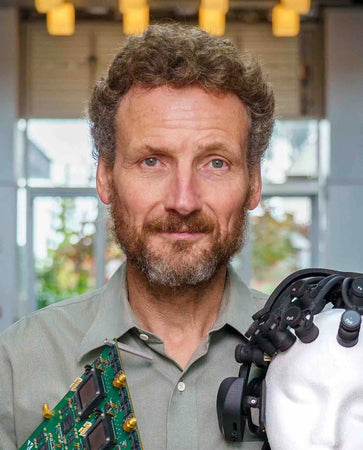
Gert Cauwenberghs

Gert Cauwenberghs is Professor of Bioengineering and Co-Director of the Institute for Neural Computation at UC San Diego, La Jolla CA. His research focuses on micropower integrated biomedical circuits, neuron-silicon and brain-machine interfaces, neuromorphic engineering, and adaptive intelligent systems. He is a Fellow of the Institute of Electrical and Electronic Engineers (IEEE) and the American Institute for Medical and Biological Engineering (AIMBE). He served as Distinguished Lecturer of the IEEE Circuits and Systems Society, as VP of Technical Activities on the Executive Committee of the IEEE Engineering in Medicine and Biology Society, on the Steering Committee of IEEE Brain, and as Editor-in-Chief of the IEEE Transactions on Biomedical Circuits and Systems.

Gary Clifford
Gary Clifford
Scientific Advisor

Gari Clifford originally trained as a physicist and later as a biomedical engineer with a focus on machine learning and signal processing. After his doctorate at the University of Oxford, he joined MIT as a postdoc, and later as a Principal Research Scientist, where he led the creation of the MIMIC II database—the world’s largest open-access critical care database. He also pioneered new methods for non-invasive fetal monitoring, which were licensed to a spin-out company. Dr. Clifford subsequently returned to Oxford as an Associate Professor, where he developed a program in digital psychiatry and co-founded the Sleep & Circadian Neuroscience Institute. Currently, Dr. Clifford serves as Chair of the Department of Biomedical Informatics at Emory University and is a Professor of Biomedical Engineering at both Emory and Georgia Institute of Technology. A champion of open science, Dr. Clifford has directed the award-winning PhysioNet Challenges since 2015. His research spans brain health, fetal development, maternal healthcare, and cardiovascular health. He was made a Fellow of the Institute of Electrical and Electronics Engineers (IEEE) in 2013 for or contributions to machine-learning applications in cardiovascular time series, and a Fellow of The American Institute for Medical and Biological Engineering (AIMBE) for outstanding contributions to computational medicine and bioengineering through innovative open science, biomedical signal processing, and machine learning. His work emphasizes health equity, particularly in low-resource settings, where he collaborates with anthropologist Rachel Hall-Clifford on initiatives like Safe+Natal. In 2025, he was named Emory’s Dean’s Eminent Investigator 2025: Elected as the Dean's Eminent Investigator and Distinguished Professor for his global impact in biomedical innovation.

Todd Coleman

Todd P. Coleman is an Associate Professor in the Department of Bioengineering, and by courtesy, Electrical Engineering at Stanford University. He did undergraduate studies and graduate studies at the University of Michigan (Go Blue!) and MIT, respectively. He did postdoctoral studies at MIT and Mass General Hospital in quantitative neuroscience. He previously was a faculty member in the Departments of Electrical & Computer Engineering and Bioengineering at the University of Illinois, Urbana-Champaign, and the University of California, San Diego, respectively. Todd’s research is very multi-disciplinary, using tools from applied probability, physiology, and bioelectronics. Examples include the development of interactive brain computer interfaces introducing novel technologies and algorithms to monitor and modulate physiology of the nervous systems in the brain and visceral organs. He has led research projects funded from the NSF, NIH, Department of Defense, and multiple private foundations. Todd is an inventor on 15 granted US patents. He has been selected as a Gilbreth Lecturer for the National Academy of Engineering, a TEDMED speaker, and a Fellow of IEEE as well as the American Institute for Medical and Biological Engineering. He recently served as Chair of the National Academies Standing Committee on Biotechnology Capabilities and National Security Needs.

David Eagleman

David Eagleman is a neuroscientist at Stanford University, an internationally bestselling author, and a Guggenheim Fellow. Dr. Eagleman’s areas of research include sensory substitution, time perception, vision, and synesthesia; he also studies the intersection of neuroscience with the legal system, and in that capacity he directs the Center for Science and Law. Eagleman is the author of many books, including Livewired, The Runaway Species, The Brain, Incognito, and Wednesday is Indigo Blue. He is also the author of a widely adopted textbook on cognitive neuroscience, Brain and Behavior, as well as a bestselling book of literary fiction, Sum, which has been translated into 32 languages, turned into two operas, and named a Best Book of the Year by Barnes and Noble. Dr. Eagleman writes for the Atlantic, New York Times, Economist, Time, Discover, Slate, Wired, and New Scientist, and appears regularly on National Public Radio and BBC to discuss both science and literature. He has been a TED speaker, a guest on the Colbert Report, and profiled in the New Yorker magazine. He has spun several neurotech companies out of his lab. He runs the top ranking science podcast Inner Cosmos and is the writer and presenter of The Brain, an Emmy-nominated television series.
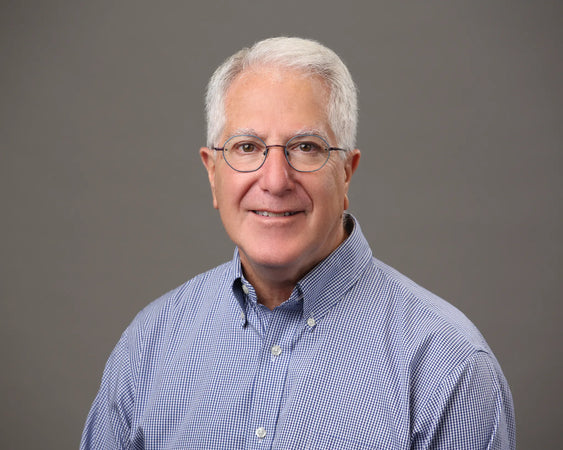
Dr. Allan Levey, MD, PhD

Dr. Allan Levey is the Robert W. Woodruff Professor and Director of the Goizueta Alzheimer’s Disease Research Center and the Goizueta Brain Health Institute at Emory University. Dr. Levey received a BS from University of Michigan and an MD and PhD (Immunology) from the University of Chicago. He then trained in Neurology at Johns Hopkins, and joined their faculty prior to moving to Emory in 1991. He Chaired the Emory Department of Neurology from 2003-2021, leading it to be among the top NIH funded research departments with a major expansion of the faculty and the clinical and educational programs. Dr. Levey is a neurologist and neuroscientist internationally recognized for his work in Alzheimer’s Disease and related neurodegenerative disorders, investigating disease mechanisms and translation to new therapeutic strategies and biomarkers. He leads multi-institutional teams in NIH translational programs, including Accelerating Medicine Partnership for Alzheimer’s Disease and the TREAT-AD consortia, and he is a steering committee member for the AD clinical trials programs. His research has produced more than 550 publications with 60,000+ citations and an H index of 128, funded by grants from the NIH totaling more than $125 million. He has received numerous awards and is a member of the National Academy of Medicine.

Helen Mayberg, MD

Helen Mayberg MD, a neurologist, is the Mount Sinai Professor in Neurotherapeutics and Professor of Neurology, Neurosurgery, Psychiatry, Neuroscience, and AI and Human Health at the Icahn School of Medicine where she serves as Founding Director of the Nash Family Center for Advanced Circuit Therapeutics. Known for her imaging studies of brain circuits in depression and their translation to the development of deep brain stimulation for treatment resistant patients, she leads an interdisciplinary research team with the shared mission to advance precision surgical treatments for complex neuropsychiatric disorders. Current studies focus on refinement of DBS for depression using a range of mechanism-of-action, predictive biomarker and AI strategies, as well as complementary animal models. An overarching goal has been to develop algorithms that discriminate patient subgroups and optimize treatment selection for individual patients at all stages of illness. Dr. Mayberg is a member of the US National Academy of Sciences, the National Academy of Medicine, the National Academy of Inventors and the American Academy of Arts and Sciences and participates in a wide variety of advisory and scientific activities across multiple fields in neuroscience including neurolaw and neuroethics.
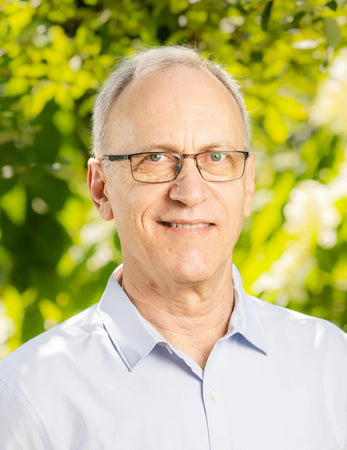
Ken Paller

Ken is a cognitive neuroscientist researching memory and consciousness at Northwestern University, where he holds the James Padilla Chair in Arts and Sciences. He also directs the Cognitive Neuroscience Program and the Training Program in the Neuroscience of Human Cognition. His lab group’s ongoing studies of memory processing during sleep aim to elucidate the hidden but critical contributions of sleep to learning, creativity, problem-solving, and cognitive habits that support well-being. He received the NIH Director’s Pioneer Award to develop clinical therapies using sleep-based memory reactivation. He set up a sleep lab in a Tibetan-Buddhist monastery, taught neuroscience to monastic scholars, and trained them in the scientific investigation of contemplative sleep practices. In 2025, he received the George Miller Prize in Cognitive Neuroscience from the Cognitive Neuroscience Society.
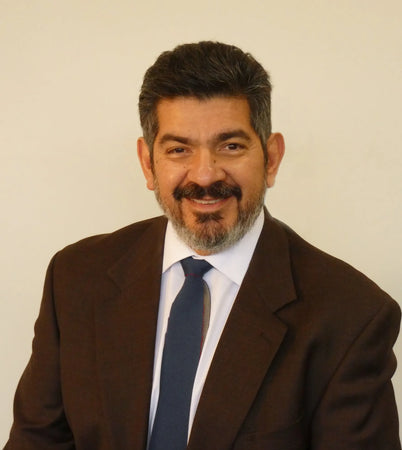
Rafael Pelayo

Rafael Pelayo, MD FAASM is a clinical professor at Stanford University’s Sleep Medicine division, author of How to Sleep. He is the co-winner of the Sleep Research Society’s 2025 Public Service Award for his leadership in helping California become the first state in the nation to pass a law supporting adolescent sleep health by delaying school start times. Since 1993 he has worked at the Stanford Sleep Disorders Clinic treating patients of all ages. He teaches the popular Dement’s Sleep and Dreams to hundreds of Stanford students every year. He currently volunteers in leadership positions for the American Academy of Sleep Medicine as chair of the Political Action Committee, vice-chair of the National Sleep Foundation, board of the directors for Start School Later, and is a past president of the California Sleep Society. He is originally from New York City where he started his sleep career as a medical student at Albert Einstein.

Phyllis C Zee

Phyllis C. Zee, MD, PhD is the Benjamin and Virginia T. Boshes Professor in Neurology and Professor of Neurobiology at Northwestern University. She is the Director of the Center for Circadian and Sleep Medicine and Chief of the Division of Sleep Medicine at Northwestern University's Feinberg School of Medicine. Dr. Zee’s research focuses on understanding the mechanisms that link alterations in sleep, circadian rhythms and sleep disorders with neurological and cardio-metabolic disorders, as well as the development of treatments for sleep and circadian-based disturbances in clinical populations. Dr. Zee has authored more than 300 peer reviewed original articles, reviews and chapters on the topics of sleep, circadian rhythms, and sleep/wake disorders. Clinically, Dr. Zee is a highly regarded sleep and circadian medicine specialist and founded the first Circadian Medicine Clinic in the United States in 2014. Dr. Zee has served on numerous national and international committees, National Institutes of Health (NIH), scientific review panels, and international advisory boards. She is past President of the Sleep Research Society, past President of the Sleep Research Foundation, past President of the World Sleep Society, past Chair of the NIH Sleep Disorders Research Advisory Board, and a past member of the NIH National Heart Lung and Blood Disorders Advisory Council.
Get in touch
Want to know more about NextSense? Fill out the form and we’ll get back to you.